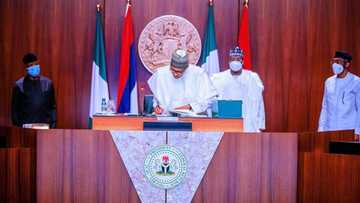History of FRSC in Nigeria
Every driver knows about FRSC, but not many citizens remember the history of FRSC in Nigeria. When was this commission established and why? What are its main functions these days? Why is everyone talking about it in 2018?

Source: UGC
About FRSC
Before we explain to you when was FRSC established, let us figure out what this title stands for. While most drivers are aware of this, passers-by who don’t own a vehicle might not even know that the 4 capitalized letters stand for Federal Road Safety Corps or Federal Road Safety Commission.
Once you discover more facts from the history of FRSC you will understand that both ‘commission’ and ‘corps’ are correct names for this Nigerian organization.
READ ALSO: FRSC recruitment 2018 application requirements
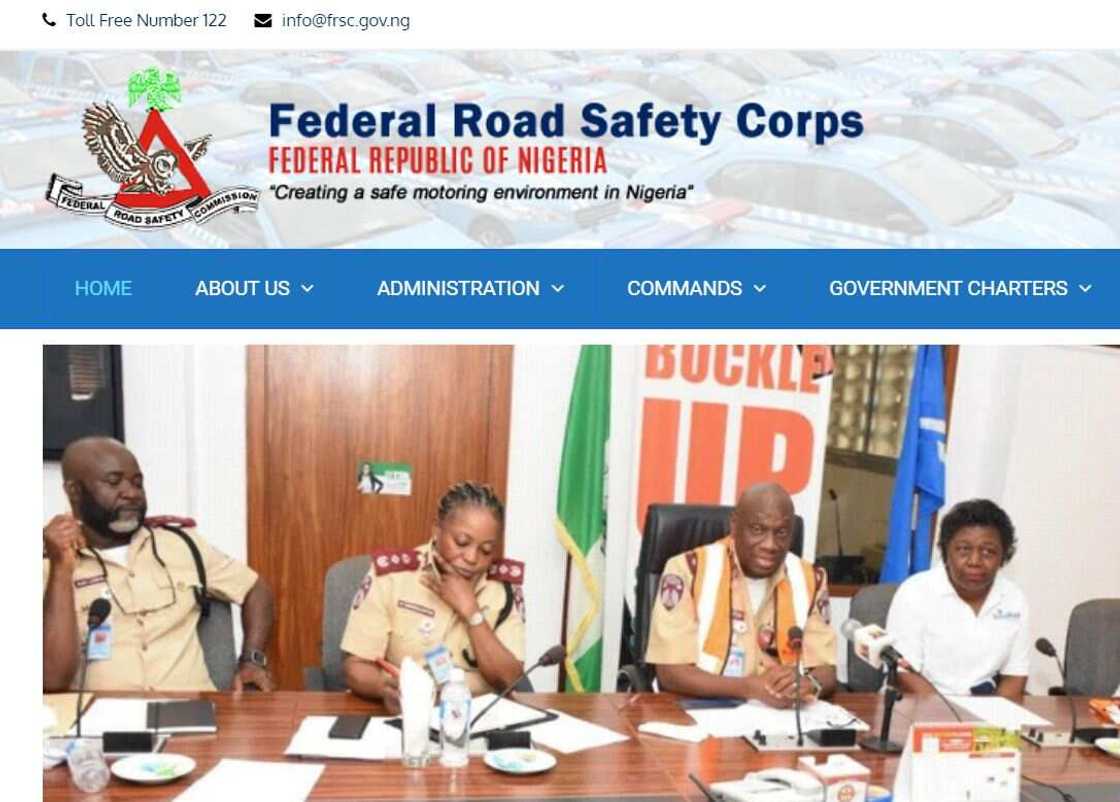
Source: UGC
History of Federal Road Safety Commission
If you visit the modern version of FRSC website, you will see that this organization is officially called Federal Road Safety Corps, however, the previous ‘commission’ name is still widely used all across Nigeria. Many people prefer using both variants because they both mean the same company.
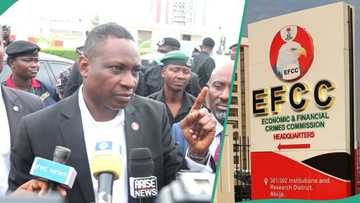
Read also
Knocks as ex-Buhari's aide mentions alleged reason EFCC doesn't arrest 'Yahoo Boys' in North
The history of FRSC in Nigeria dates back to 1988 (now you had learned when was FRSC established) when General Ibrahim Babangida who was the President of the country decided it was time to do something with a high danger of road accidents. The first commission chairman was a professor and activist Wole Soyinka.
The year of establishment is the reason why so many of us talk about FRSC in 2018. The organization celebrates its 30th anniversary this year.
Since its foundation, Federal Road Safety Corps has been an official government agency. Its main function is to provide and administer road safety all across the country. The organization is present in each state, and it also operates in the capital of Nigeria.
It is curious that in the early and middle 20th century Nigeria failed to create official policy and take necessary actions to fix major problems on the country's roads through the special additional agency creation.
There were several attempts to start something similar to FRSC before 1988. For example, back in the 1960s, there was a special program taken within the country that was supposed to provide road safety control. A similar attempt was taken in the 1970s.
READ ALSO: Nigeria road signs and their meanings
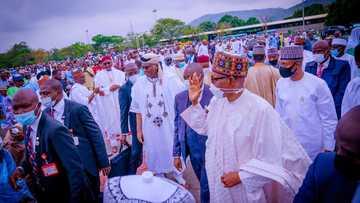
Read also
Who my successor will be - Buhari speaks to Nigerians in first tweet after lifting Twitter suspension

Source: UGC
FRSC and new challenges
As the number of vehicles on roads increased, the necessity of providing on-road-safety policy grew as well. The government had to take measures because the number of road accidents bred like crazy. There were times when Nigeria was considered one of the most dangerous countries in the world to drive a car. In other words, the agency was established to address this particular issue as well many other problems.
The history of FRSC in Nigeria shows how the organization and its Act has been changing throughout the years. For example, the special Decree number 45 that was taken in 1988 (to announce the creation of the agency) was replaced by new Decree 35 four years later and got another major upgrade in 2007. This latest document changed the name of FRSC from ‘commission’ to ‘corps.’
The new organization proved how essential its functions are for the whole country. Just think about it. According to thisdaylive.com, more than 40,000 car crashes were registered in Nigeria back in 1976. And this number dropped down to less than 4,500 road accidents in 2017.
READ ALSO: Consequences of disobeying traffic rules and regulations in Nigeria
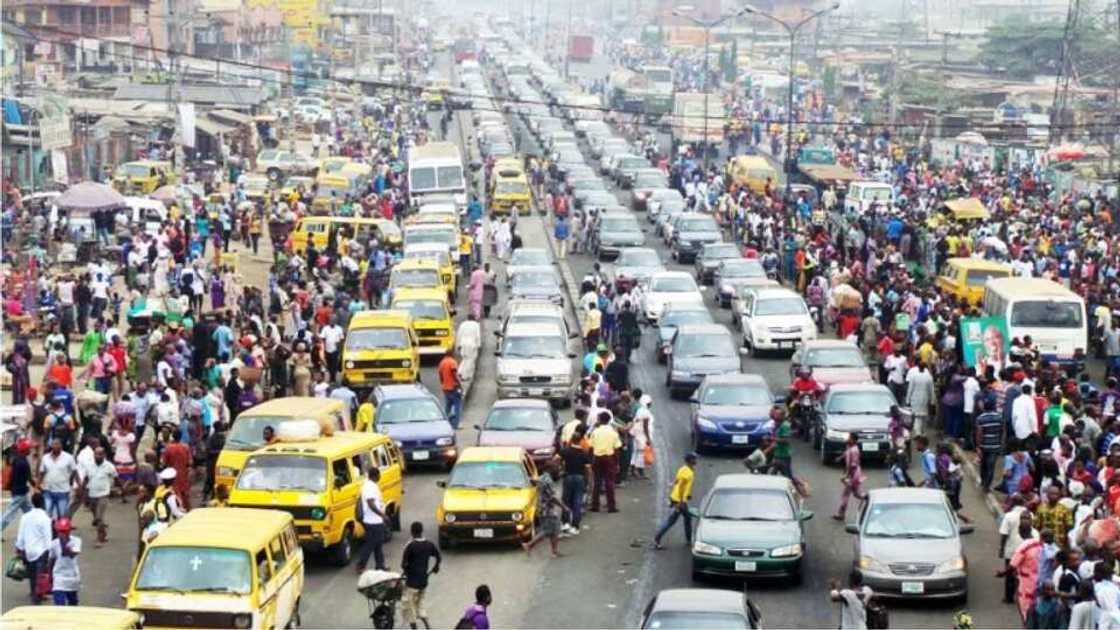
Source: UGC
Road Safety Corps today
This is the brief history of FRSC till date. Just like it was 30 years ago, the modern Federal Road Safety Corps has to make sure that all Nigerian highways are safe to be used by car drivers, motorists, all traffic participants, etc. This organization can recommend different methods that can bring down the number of road accidents across the country. It can also help to educate citizens about the discipline on the roads and design/produce all categories of driver’s license and car number plates.
Besides, modern society expects the road safety agency to provide mobile clinics to help victims of road accidents with receiving the on-the-go quick medical help. It also expects corps members to arrest people who have caused or committed an offense on the roads.
The roads and highways should be safe to drive, and thus the agency has to remove any obstructions that exist. Regulations, set of rules, standardization and education are the four major responsibilities that are historically given to FRSC ever since its creation, and everyone in Nigeria should remember the toll-free phone number 122 that is created specifically for traffic emergency situations within the country.
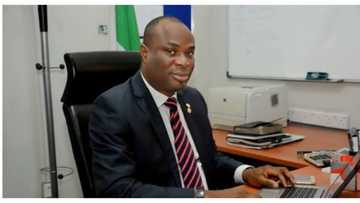
Read also
What continued EndSARS protest will cause in Nigeria if youths don't stop now - APC chieftain
The history of the Federal Road Safety Commission continues with Boboye Olayemi Oyeyemi being the Corps Marshal and leader of the commission in 2018.
READ ALSO: Remita GIFMIS code for FRSC: how to generate?
Source: Legit.ng


